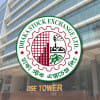Trillions embezzled from stock market

Bangladesh's devastating 2010-11 stock market crash exposed the dark elements of a financial system riddled with manipulation, fraud and weak regulatory enforcement.
According to the White Paper on the State of the Bangladesh economy, prices of shares surged amid the influence of powerful business groups and regulatory lapses. Shares of some companies skyrocketed between 300 percent and 900 percent during 2009-10.
Within months, the benchmark index of Dhaka Stock Exchange (DSE) plummeted by nearly 50 percent, erasing $27 billion in market capitalisation—a loss equivalent to 22 percent of the country's GDP, according to the White Paper on the State of the Bangladesh economy, which was submitted to the Chief Adviser yesterday.
As such, trillions of takas were embezzled through fraud, manipulation of placement shares, and deceitful Initial Public Offering (IPO) processes, according to the white paper prepared by a government-formed panel of mostly economists.
The collapse of stock market triggered a wave of despair, with some investors resorting to suicide, as social discontent mounted across the nation. The roots of the crash mirrored the infamous 1996 stock market debacle.
The white paper panel observed that both the crashes were driven by collusion among institutional investors, high-net-worth individuals, and brokerage firms, who manipulated share prices to enrich themselves at the expense of retail investors.
It said an investigation team, formed by the government after 2010-11 crash, flagged egregious irregularities, including placement trading, inflated IPO valuations, and suspicious transactions under omnibus accounts.
"Despite public outcry, many perpetrators avoided accountability, often shielded by political connections."
A manipulation network involving entrepreneurs, auditors, and issue managers thrived, exploiting regulatory loopholes and public trust, the paper added.
It said market intermediaries suffered massive losses, with merchant banks and brokerage firms collectively bearing Tk 13,000 crore in negative equity, as per the white paper.
The white paper said development of the capital market has since stagnated. The number of listed issues remains low, corporate debt securities are virtually nonexistent, and market capitalisation lags behind regional peers, the white paper said.
A 2023 study by the Centre for Policy Dialogue revealed persistent distrust, with 56.3 percent of businessmen blaming weak regulatory enforcement and 50 percent citing suspicious trading in secondary markets.
While reforms such as the Demutualization Act of 2012 and the Financial Reporting Act of 2015 aimed to restore integrity, systemic weaknesses persisted, the paper said.

 For all latest news, follow The Daily Star's Google News channel.
For all latest news, follow The Daily Star's Google News channel. 







Comments